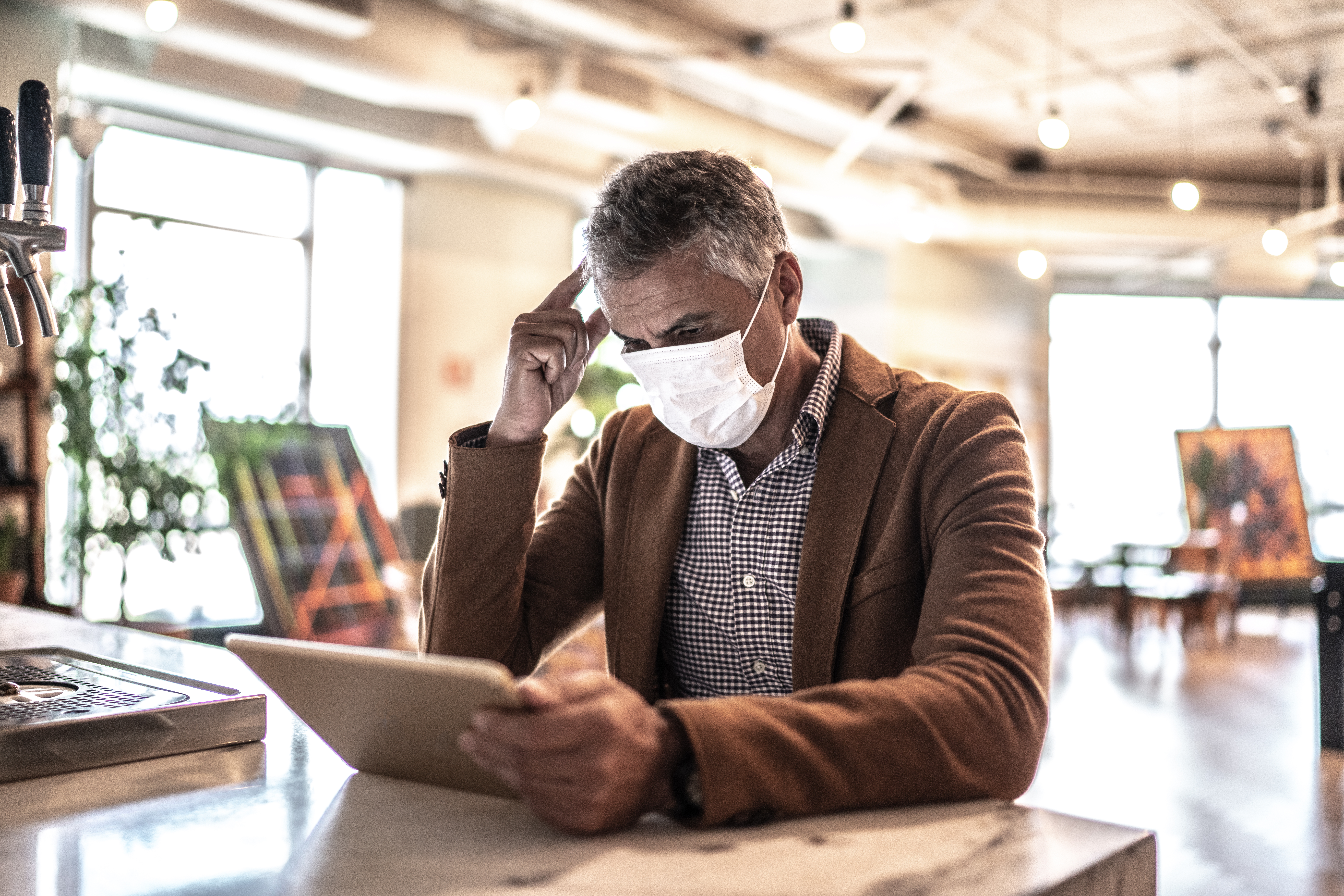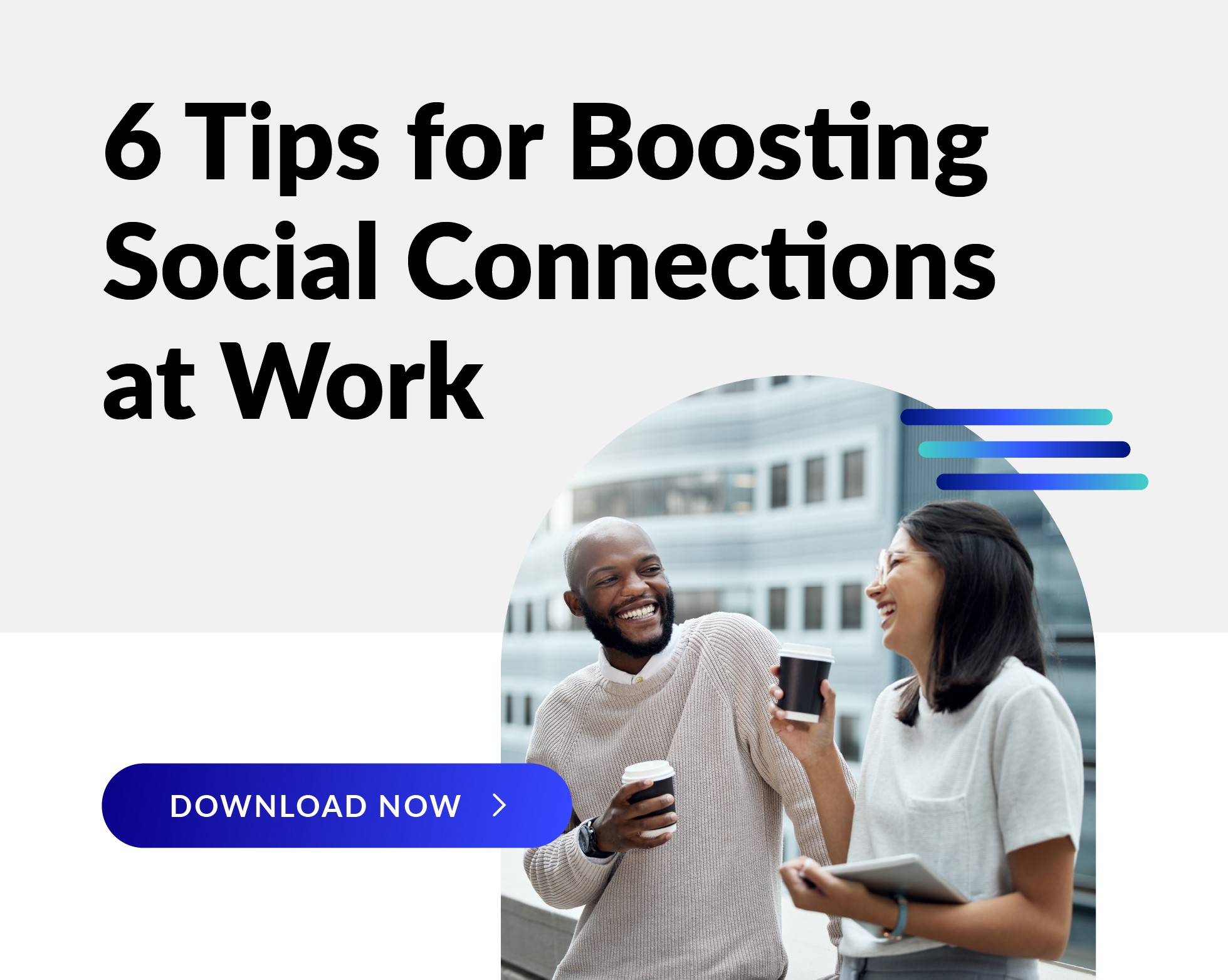 As of this writing, just over 48% of Americans over the age of 12 are fully vaccinated.1 This is concerning to health experts, especially considering the rise in delta variant cases. For some perspective on why it’s so important to get the COVID-19 vaccine, we chatted with our Medical Director, Dr. James Beckerman. Here’s a recap of our conversation.
As of this writing, just over 48% of Americans over the age of 12 are fully vaccinated.1 This is concerning to health experts, especially considering the rise in delta variant cases. For some perspective on why it’s so important to get the COVID-19 vaccine, we chatted with our Medical Director, Dr. James Beckerman. Here’s a recap of our conversation.
Why is it important for everyone who is eligible to get the COVID-19 vaccine?
Getting beyond this pandemic, or at least managing it, is entirely in our hands—actually in our upper arms! Our decision to get vaccinated not only protects us from getting sick but also protects people around us. Especially as these new variants come around, even if you’re not concerned about getting sick yourself, I think we’d all agree that we want to prevent those around us from getting sick. These new variants are not inevitable, and if we do the work now and create more herd immunity, then we’ll continue to protect our communities from future variants moving forward.
We know certain groups of people may not be well-protected from the virus due to medical conditions, even if they do get the vaccine. Can you share a bit about this and how increasing the vaccination rate can help?
It’s important to reflect and recognize that there are people all around us who have challenges related to the immune system—for example, those receiving chemotherapy, those with certain types of cancer, people with an immune disorder like Crohn’s disease or rheumatoid arthritis who may be taking immunotherapy drugs that suppress their immune system. We honestly don’t know if the vaccination response is that effective for these individuals. So when people with healthier immune systems get vaccinated, it not only helps them, but it also creates an immunity shield around those who may be more vulnerable. Keep in mind that no vaccine is perfect, so we rely on more and more people getting vaccinated to dilute the imperfections of the vaccine and make it more effective for all of us.
How do you talk to your patients who are hesitant about getting the vaccine?
I think it’s important as a physician to not be in a position of judgment, but one of education and counsel in a relationship based on trust. I ask patients routinely if they’ve been vaccinated, and if they haven’t, I ask them about their thought process, how they made the decision they came to, and try to get them to think about how they made other big health decisions in their lives—based upon science and the recommendations of experts.
Generally speaking, we’ve taken the politics out of many other healthcare decisions we make, and I think we’d do well to follow that same rubric for making decisions about vaccines: follow the data and listen to the doctors and medical and scientific leadership. Even though doctors are not perfect, they have your health and interests in mind, not your votes or your political representation. They’re just doing their jobs the way they would for you if you had any other health concern.
Some patients I’ve spoken to about getting the vaccine said they’d think about it a bit more, but it’s always hard to know what they’ll end up doing. In the end, I see my role as one of being a trusted partner in making healthcare decisions. I also lead with empathy—if we aren’t empathetic, we aren’t living up to our part of the bargain either.
As many head back into the office, we’re curious to know the risks—if any—in situations where some coworkers are vaccinated and some are not. What are some precautions we can take if we’re concerned?
I acknowledge that some people being vaccinated and others unvaccinated might cause stress, distraction, lower productivity, and make some teams less cohesive. The good news is that as a vaccinated individual, your risk of contracting the virus or getting very sick from it is low, even if you’re spending time with someone in the office who’s not vaccinated. You can lower your risk even further by keeping a reasonable distance and continuing to wear a mask. You may feel peer pressure to not wear a mask if nobody else is, but hopefully we can get beyond that and just decide we’re going to be respectful of other’s decisions, and they’re going to be respectful of ours.
If an organization is hesitant to require employees to get the vaccination, what are some ways it can educate employees so that they might change their minds?
It’s important to remember that this is a healthcare decision, like many others that people are making constantly. And when we think about what is effective in helping people change behavior to get healthier, guilt doesn’t work, punishing doesn’t work, making people feel bad about it doesn’t work. What does work is respect, understanding, and listening to their concerns. People also respond to other people—for example, if you hear a story about a person who had a challenging experience with a particular disease, you might become more motivated to behave differently or donate money to support a cause. I think a similar strategy—using testimonials and employee stories—can work for this situation.
One last point—if we think about it, historically there are many work and school settings where certain vaccines are required and have been for many years. I recognize that some people would like to see vaccines have a higher level of approval beyond an emergency use authorization before vaccine requirements would be commonplace. But I also feel that some may be using the absence of traditional FDA approval as a reason to not get the vaccine yet.
As we wrap up, we’re wondering if you can offer some hope for the future?
Yes, a reminder that our vaccine program is working. Fewer people are getting sick, and fewer people are dying since the pandemic came into full force. And so the good news is because most people have gotten their first shot in the US, we are experiencing the benefits. But, as with anything, you don’t want to rest on your laurels. We want to recognize that as variants crop up and we head into flu season in the fall—where people will be exposed to other pathogens that make them sick—it’ll be time to double down and remind ourselves why we worked so hard to get to this point, and really lean on the power of our community to get to the next step.
Related Content:

